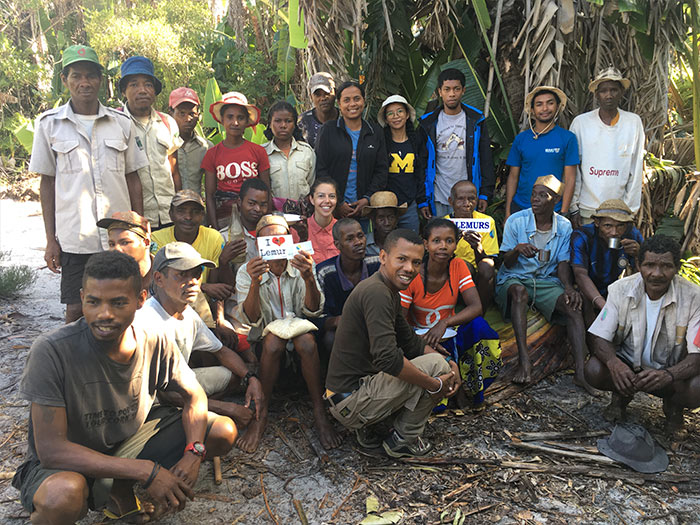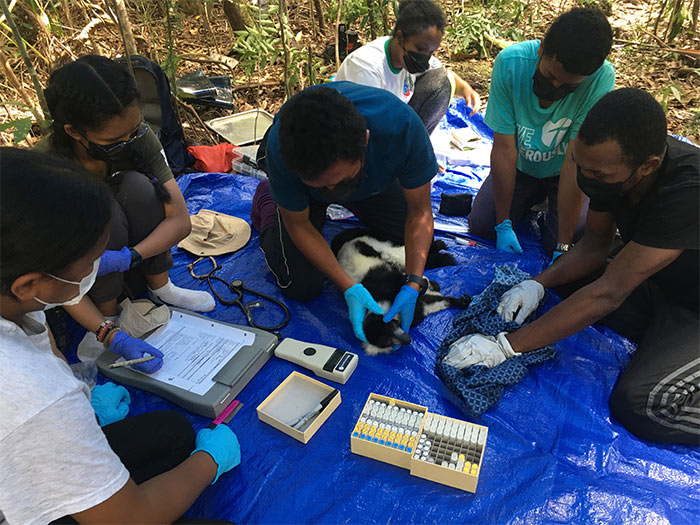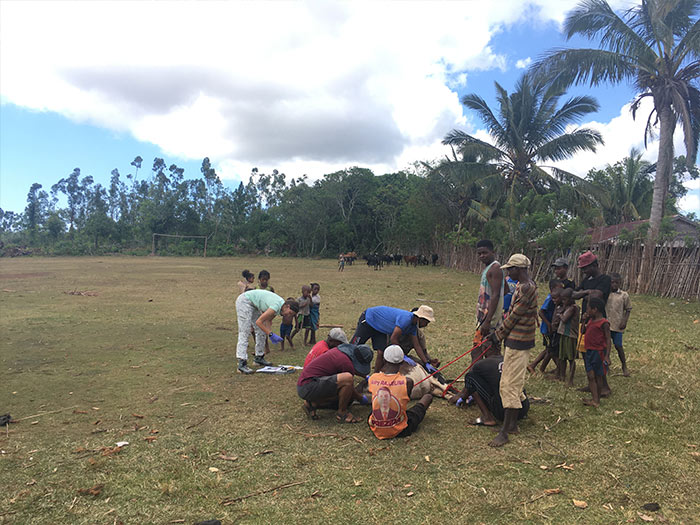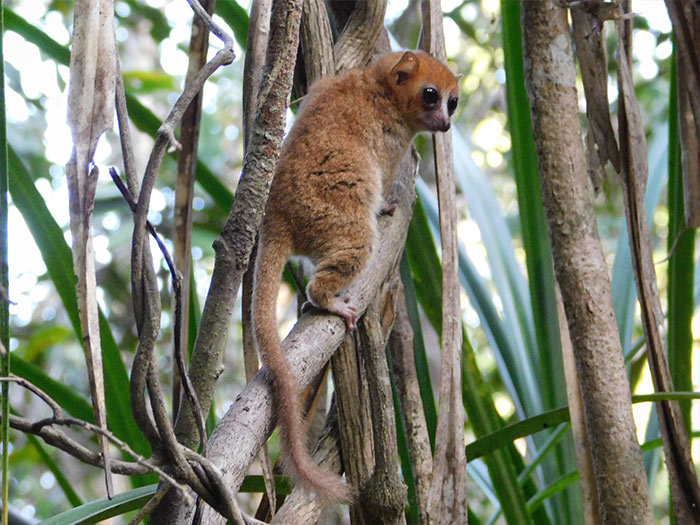
Happy New Year!
I’m Conservation Genomics Scientist, Rachel Johnston, back from another successful research expedition at the Manombo Special Reserve in Madagascar!
If you missed my posts from my previous expedition, read below for more details on Zoo New England’s “One Health in Madagascar” initiative.
Through Zoo New England’s support, I was able to lead a team of 32 people on the three-week expedition, including Malagasy biologists from Centre ValBio, guides from the Madagascar National Park Service, a veterinarian from the Malagasy-led organization Mahaliana Labs, and three Malagasy Master’s students.
The purpose of the research is to document the reserve’s incredible biodiversity, and investigate the determinants of animal health in the area. This work will inform land managers in their conservation efforts, and give insight into the factors that threaten or benefit the reserve’s unique species, including endangered species. During the three-week mission, we were able to perform health exams for a whopping 120 animals, including five species of lemurs!
Through our collaboration with the non-profit Health in Harmony, we were also able to learn about conservation-related activities being carried out by people living in the local communities, including reforestation efforts and reduction of logging. Through this long-term collaboration, we aim to study the degree to which different conservation efforts impact animal biodiversity and health.
Here are some photos of the exciting work we completed!
About Zoo New England’s “One Health in Madagascar” Initiative
Zoo New England grew its roster of innovative international partnerships with an effort in Madagascar, led by the non-governmental organization, Health In Harmony, to improve the conservation status of several species of lemurs and other rare wildlife in a special reserve in southeast Madagascar, while also investing in the health care, food security and economic opportunities designed by Malagasy community members who live around the forest.
Health in Harmony promotes more sustainable livelihoods based on the premise of “radical listening,” in which communities are asked what they see as solutions to reduce reliance on forest degradation. Health in Harmony then works with the communities to implement those solutions. As these improvements are made, teams of skilled technicians, funded by Zoo New England, conduct rapid biodiversity assessments of Manombo Rainforest. Field missions, like the one I’m on today, document species richness and population abundance of mammals, amphibians, reptiles, birds and plants.
Visit Zoo New England’s website for more on this program.








